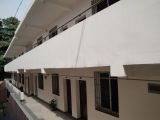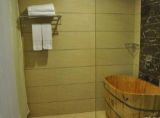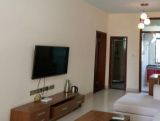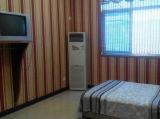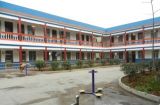养老机构如何确保用户的健康和安全?

Answer:
1. Comprehensive Health Assessment:
- Conduct regular health screenings and check-ups to monitor vital signs, physical health, and mental well-being.
- Identify and address any health concerns promptly.
2. Safe and Clean Environment:
- Ensure a clean and sanitized living space with proper sanitation and hygiene protocols.
- Provide comfortable and safe seating, beds, and amenities.
- Implement fire safety measures and emergency plans.
3. Staff Training and Certification:
- Train and certify staff members in first aid, CPR, and dementia care.
- Provide ongoing training to ensure staff stay updated on best practices.
4. Medication Management:
- Adhere to strict medication protocols and record-keeping.
- Monitor medication side effects and provide necessary adjustments.
5. Nutrition and Diet Assistance:
- Provide nutritious and balanced meals and snacks.
- Offer nutritional counseling and support for dietary needs.
6. Mental Health and Social Care:
- Promote mental well-being through activities and social interaction.
- Provide access to recreational activities, social groups, and counseling services.
7. Emergency Preparedness and Response:
- Develop and implement emergency plans to ensure safety in case of natural disasters or medical emergencies.
- Provide first aid and emergency response equipment.
8. Infection Control:
- Implement strict infection control measures to prevent the spread of diseases.
- Vaccinate residents against preventable diseases.
9. Communication and Family Involvement:
- Maintain open communication with families and provide regular updates on their loved ones' health and well-being.
- Encourage family involvement in the care process.
10. Continuous Monitoring and Evaluation:
- Regularly monitor residents' health and well-being.
- Conduct periodic reviews of policies and procedures to ensure continuous improvement.
































































